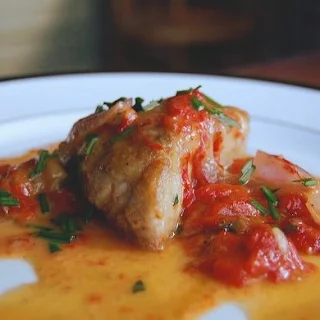Pumpkin Sweetbreads South African Bredie Stew
Despite the name Sweetbreads are not sweet. Sweetbreads are offal meats or organ meats the thymus and pancreas from veal and lamb, beef and pork.
Sweetbreads refer to a type of offal meat, which includes organ meats from animals such as veal, lamb, beef, and pork. Specifically, sweetbreads are derived from the thymus gland and pancreas of these animals. The term sweetbread can be attributed to the historical use of the word sweet as a way to describe the tender and delicate nature of these organ meats.
Sweetbreads are highly regarded in culinary traditions around the world for their unique texture and flavor. When properly prepared, they have a creamy and smooth consistency with a slightly nutty and earthy taste. Due to their rich flavor profile, sweetbreads are often featured in gourmet dishes and can be prepared in various ways, including sautéing, braising, or even deep-frying.
Pumpkin Sweetbreads Bredie Stew Recipe
Total time from start to finish 50 minutesSweetbreads are available from respectable butchers.
Ingredients
2 pounds veal sweetbreads soaked for two hours and rinsed well
1 cup canned puree pumpkin
1 cup any sliced mushrooms
1 small onion diced
1 cup sliced tomatoes
11/2 teaspoon salt
1/8 teaspoon black pepper
2 tablespoon butter
11/2 cup cream
4 cups water
Directions
- African Mexican Salsa

- Learn how to cook buttermilk fried yams

-
Recipe of peppered goat

- San Pedro African Seafood Recipe

-
Nigerian Breakfast Fried Akara and Ogi



